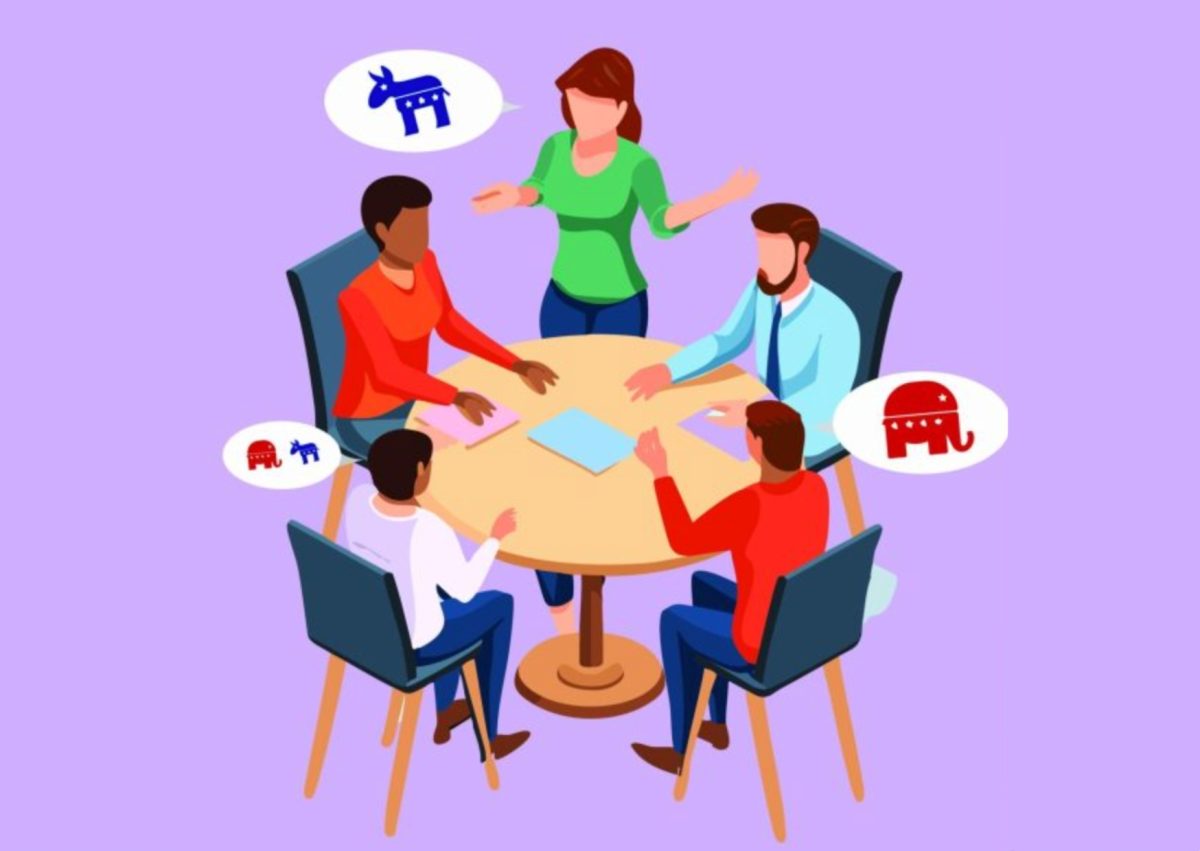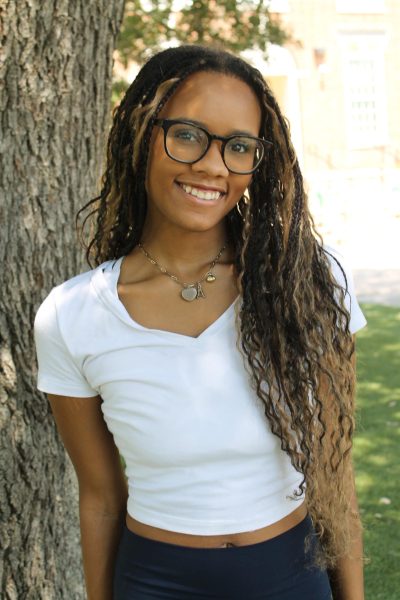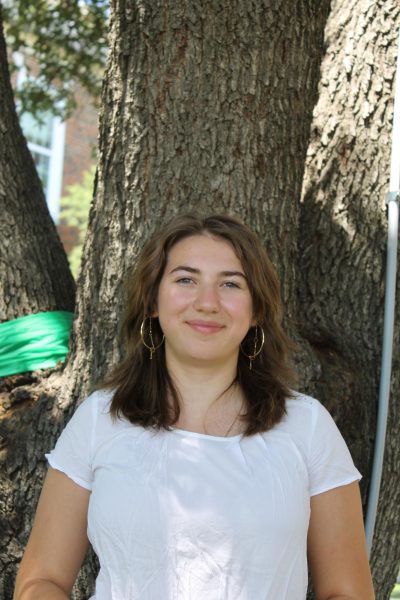There is no doubt that politics have been discussed more than usual recently, especially in the context of the upcoming election. And as seniors turn 18, the legal voting age in the United States, creating an open conversation in the classroom becomes more important than ever as political opinions are translated into democratic participation.
“We encourage political discussions in class …I want my kids to be good critical thinkers and develop those skills in class and no matter who they’re talking to, they’re gonna go into that voting booth, and it’s just them and their conscience,” government teacher William Caraway said.
In the modern day, many of these political discussions, especially among younger people, occur on social media, greatly increasing the platform’s role in politics. In fact, the presidential candidates themselves appear on podcasts and social networking sites like Instagram, Twitter, and Tiktok.
“We also talk to kids about not just social media, but just media in general,” Caraway said. “Fox News is gonna be more biased towards one ideology versus CNN that’s gonna be more biased towards the other. Students have to understand that and understand that, whatever they’re looking for, they’re gonna find depending on what they believe.”
Social media plays a huge role in people sharing their political opinions. The unrestricted access and ability to post any opinion make it easier for misleading information to spread, but can also help people see and speak on politics on a national scale.
“Social media makes us think that, more about the country as a whole and less about our own communities. I think that when we shift our thinking to be more to be bigger it makes it easier to be more divided. Because if we’re thinking locally, you might be thinking about what’s going on in your specific community or your town, you’re gonna be thinking about people you know” UT Dallas political science professor Dr. Curtis Ram said.
Though political conversations are essential to helping democracy, oftentimes open discussion about politics is still looked at as taboo. This puts a damper on the progress that political conversations can have on democracy.
“It’s a little bit taboo to talk about at work or even amongst your friends if you don’t know their political views because people are so polarized that they might get offended,” democratic voter Emily Gaston said.
Conversations can quickly become polarized, instead of being so quick to react, Dr. Bram encourages people to listen before snapping back or hearing the other person out before jumping to conclusions.
“I said, hey, student x why are you shaking your head? And he said, I’m too mad right now. I can’t respond respectfully. And I thought about this, and my first instinct was to just say, okay, and move on, and have someone else talk. I said to him, could you take a second and try to think about what your point would be and say it respectfully? He paused, and then he did. And it was awesome.” Dr. Bram said.
Engaging in political discussion can influence a person’s perspective on a specific issue, however changing someone’s political party is more challenging.
“I try to listen to other viewpoints, and most people in my family don’t have my same political views. So I try to listen to their points and take that into consideration.” Gaston said.





